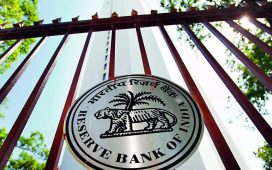ET has seen the letter. Senior industry executives said the state is considering linking incentives on hybrid and electric vehicles (EVs) to guidelines outlined in FAME II. Some car makers had raised objections to the incentives for hybrids announced by Uttar Pradesh as they feel any state policies not aligned with those of the Centre will be ad hoc and create confusion.
“The state transport authority is unlikely to give a blanket exemption and is considering specifying a price cap incentivising only certain categories of strong hybrids,” a person aware of the discussions told ET. “The eligibility criteria for these vehicles and the guidelines for implementation are likely to be linked to FAME II.”
Final Guidelines to be Out Soon
FAME II had extended incentives to 55,000 electric cars and hybrid vehicles priced up to Rs 15 lakh and used only for commercial purposes, such as taxi services.
The Uttar Pradesh Industries Department had announced July 5 it will waive registration charges on hybrid and plug-in hybrid vehicles, with effect from July 1. Currently, electric vehicles (EVs) in India are taxed at 5%, whereas hybrids are taxed as high as 43%, just below the 48% tax imposed on petrol-driven cars. Toyota, Maruti Suzuki and Honda sell hybrids in India, which currently doesn’t have any plug-in hybrids. Incidentally, the most affordable hybrid, the Toyota Urban Cruiser Hyryder, is priced at Rs 16.66 lakh (exshowroom).
The July 9 letter had also invited carmakers for a discussion on the policy. An initial round of consultations was held with industry stakeholders July 11, with carmakers asked to submit written recommendations. Final guidelines specifying price caps and categories for implementing the state’s policy on incentivising electric and hybrid vehicles are likely to be announced shortly, said the people with knowledge of the matter.

Pure electric-car makers oppose incentives to hybrid vehicles.
“Electric vehicle makers are making massive investments in the technology,” said an executive at an EV maker. “They fear that any incentive given to hybrids will slow down the transition to all electric, especially at a time when sales of electric cars are under pressure due to high costs and lack of charging facilities.”
MULTI-TECH APPROACH
While EV makers like Tata Motors and Mahindra & Mahindra advocate that resources should be ploughed in to move to zero emission vehicles, hybrid makers such as Toyota, Maruti Suzuki and Honda contend that a multi-technology approach, which includes encouraging adoption of ethanol, flex-fuel, biogas, hybrid and battery electric vehicles is better suited to reduce emissions in a diverse country like India.
ET reported July 12 that domestic EVs sales slumped in line with global trends due to high prices and lack of charging infrastructure, among other factors.
Uttar Pradesh is the second largest car market after Maharashtra and accounts for 11% of total sales. The share of hybrids in the state is less than 1% currently. For cars priced above Rs 10 lakh, Uttar Pradesh levies a registration charge equivalent to 10% of the ex-showroom price. The waiver that was announced July 5 was estimated to result in an effective price reduction of Rs 1.5 lakh to Rs 3 lakh depending on the model and variant. That would have reduced the price gap between comparable petrol models and hybrids, making the latter more attractive.










